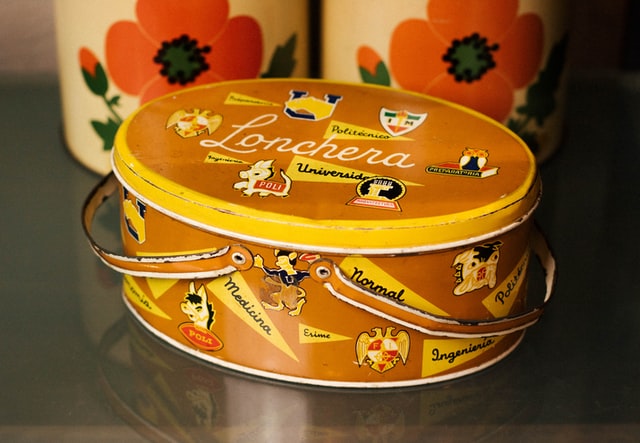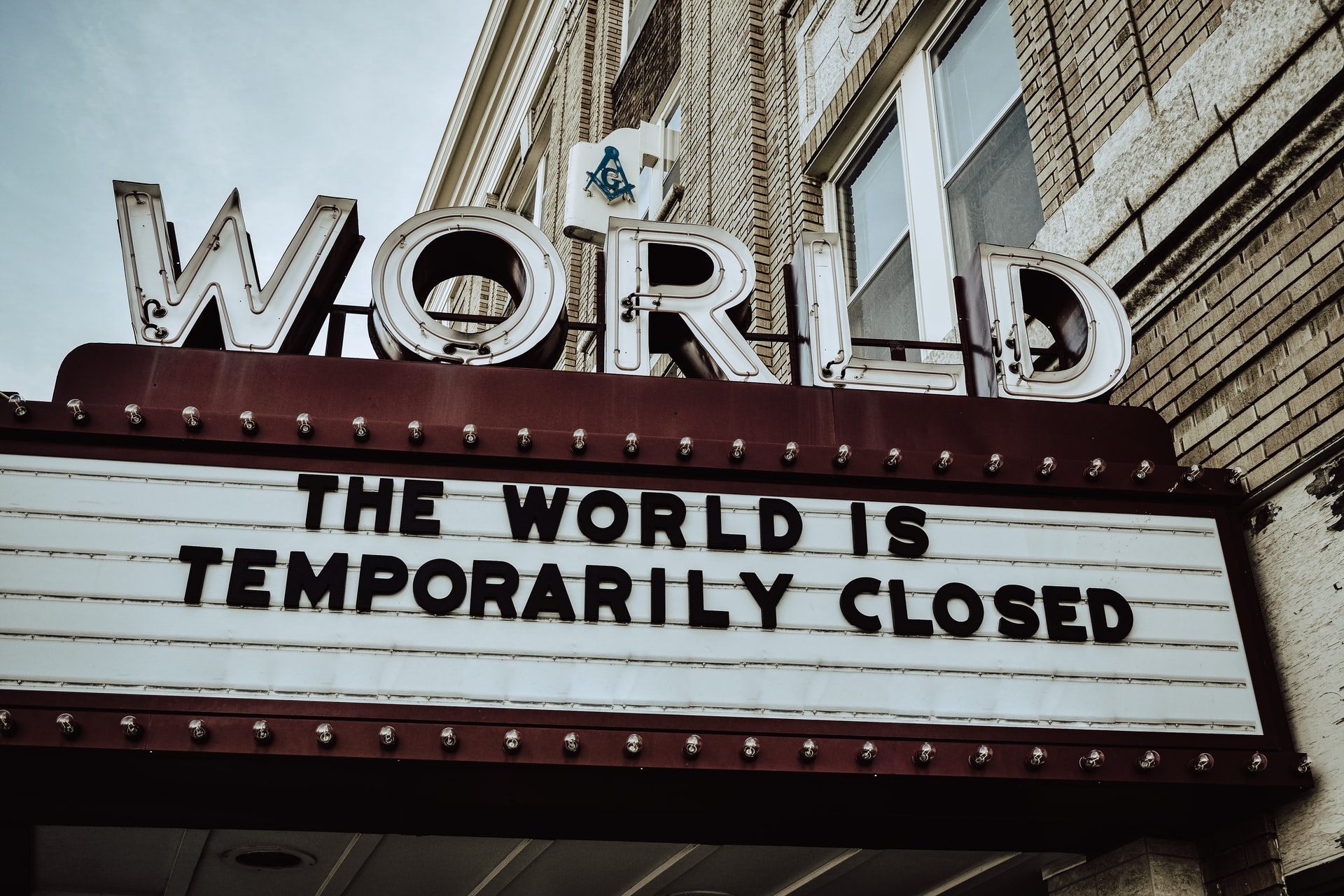“Mum, it’s alright-”
“But it’s so small!”
“Muuum!”
“…and dingy!”
“It’s alright, Mum. God!” and Joan dropped her last suitcase onto the garret floor, “it’ll be okay. It’s what I can afford. It just needs tidying. If I need you I can always ring.”
“And you can visit whenever you want, Joan love. You can come back any time in fact! Whenever you feel lonely I’ll jump straight in the car and come get you.”
“It’s two hours drive, Mum!”
“It doesn’t matter, I-“
“Mum, it’ll be fine and that’s the end of it! Come on, let me see you out.”
In the now empty room Joan Gonne had left her cases. They were filled with clothes, some records and pamphlets. Lots of pamphlets. She was twenty nine years old and had left Avon Murray for the first time that morning. God had come to her when she was twenty four and now, five years later, she had finally been accepted onto the theology course in Manchester. You must stop your writing, her mother had told her, until we know it is in line with the Church.
Her mother hit the bollard on the way out. Joan had been giving her the “halt” sign with her hands, then shouting it, but it hadn’t helped. Her mother was seventy six years old and had left Avon Murray for the second time ever that morning. The first time she left, some time in her forties, she had come back with Joan.
The door opened again and Joan was now sitting on the floor, unpacking her record player. She would put on one of her favourite gospel records. Washington Phillips. The one with all the fiddly bits that wriggled in the air like angels’ fingers. She put it on and stared out over the industrial night, the darkness of the tram depot, the far light of the cricket field. The music played over it. She would write about loneliness tonight. That loneliness is the sin of abandoned life.
Her classes started on a Tuesday. She was scared and alone, surrounded by new faces, each of which moved into and out of the lecture theatres without ever meeting her eye. The church was filled with packed-tight backs of heads like a holy shag carpet. They never turned to see her and as the reverend shook her hand at the door he seemed to launch her out onto the street with it. She told herself that she didn’t mind. That her mum had told her about it,
“I told you it would be like this, Joan. Come home, love, it’ll all be fine. We can see about a distance course… no, stop mithering, Joan, have you even asked them if you can do a distance course? Well maybe you should ask-“
“It’s alright, Mum! I’ll see you at Christmas! I’ll be back at Christmas!”
“Oh yes, Christmas!” her mother loved Christmas, “what is it you want this year, love?”
“I don’t know, Mum…”
She hadn’t known what she had wanted. Not a single thing. Not until Stanley turned up, that is. She had taken to handing out her pamphlets in front of the library. Her mother had warned her not to, and that everyone would laugh at her. But being laughed at would at least break the silence of these weeks. She realised that in the past five weeks in Manchester she had written more words than she had spoken. She realised it when he spoke to her,
“What’s this then?” he held her pamphlet, Our Lord it is on Whom you Tread in Light, loosely between two fingers.
“It’s about… Jesus?” she offered. She’d never been asked to explain her writing before.
“Oh yeah?” he opened it at a random page, furrowed his brow, “I’m Jewish but-“
“I’m sorry!” and she tried to snatch it back. Too late. He’d pulled it away.
“It’s alright. Hey! Hey, I didn’t mean anything by it! I was just going to say I like your drawings is all,” he opened the pamphlet again, pointed to an illustration of St Margery rubbing her tears into the cobblestones. He was smiling. Sincerely, she thought, through his thick glasses. “You draw like a real middle ages… person, artist? Like a Gothic… artist.”
“Oh,” she didn’t know what to say.
“Can I have it?” he held it up to the light. As he did he was suddenly overcome by a fit of coughing. He bent double, his coughs viciously hacking. It was like his whole insides were trying to wrench out of him. He spat and she noticed a thin trail of clear mucus pour out of him. His glasses fell to the ground. It seemed he would follow them too but thankfully stopped, still bent double. He was shaking, roughly dragging air into his chest, his chest which heaved in and out like an accordion. Joan bent down to pick up his glasses. She cleaned the mucus off on her cardigan. She wanted to rub his back but didn’t dare to touch him. His hair was curly.
Soon his breathing slowed back to normal. He looked up at her, first purple with shock then, wiping his mouth, red with embarrassment. Turning white, she passed him his glasses. He put them on. Looked down at her pamphlet. He’d scrunched it, coughed on it. He looked back up at her, his eyed filled with contrition,
“I’m so sorry.”
And then he scurried off, the pamphlet still in his hand. She could have sworn she saw? No, it couldn’t have been. But she felt like she’d really seen blood in his tears.
She knew he was called Stanley when then said it on the news a week later. Stanley Cadman was the first person to contract and die of the Ebola virus in the UK. Whoever had brought the virus to Manchester was unknown. It was only known that Stanley had never left Manchester, not in the past six months, not in his entire life. He was a quiet, god-fearing boy, they said. He wrote psalms in his spare time. Joan listened to the radio all night that night, waiting for them to say more about him. At about two a.m. they moved on to talk about an American convoy ambushed in Libya.
She knew they would talk about him again. She stayed up late every night waiting. She watched the dark tramyard where sometimes small groups of lights would move. She watched the lights move over every tram in the darkness and she would listen for the news but none would come. She wrote pamplets; Stanley Cadman and the Breath of God inside Him, and For Whom Disease brings Death is made Life. She drew his picture in the pamphlets and couldn’t remember the nice things he’d said to her about her drawings. She liked to draw his curly hair.
She wondered if the lights in the tramyard were angels bringing her Stanley Cadman, but knew that this is not what angels do.
Eventually she heard his name again on the radio. It was only in passing but it was there. She had known he would return to her,
“…sixth victim of the Ebola outbreak in Greater Manchester. The origin of the first victim’s contraction of the disease, the victim revealed as 21 year old Stanley Cadman, remains a mystery. None of the subsequent victims appear to have been connected to Cadman. ‘Not even tangentially,’ according to the Secretary of State for Health. This ultimately means that experts are no closer to identifying the source of this terrible outbreak. For now the health advisory committee is recommending-“
But Joan Gonne knew where the disease had come from, or at least felt she knew. The Lord acted in mysterious ways indeed. She had shown him her pamphlet. Stanley Cadman had seen her drawing of St Margery weeping and he himself began to weep tears of blood. She kept this in her heart, of course. She mentioned nothing at church. Nothing in class. Who would she speak to anyway? She wrote it in her pamphlets but no one read her pamplets. Not even the LGBT society who campaigned to have her banned from campus.
“…but Joan I’m so worried! I’ve emptied the car, there’s room for everything. All your stuff will fit in there. We can get you back in one trip. Please!”
“Mum, no! I’m telling you, I’m fine. It’s fine. Everything’s fine!” she held her mouth over the receiver, trying to control the anger in her breathing, “-no. No, Mum, I’m not coming home. No, there’s hundreds of people here, thousands even. Only six have… okay seven now, but only seven have got Ebola. That’s seven out of thousands, Mum! It’s totally safe. No, calm down. It’ll be okay. I like it here now. Yes, I’m making friends. I’ll tell you about them at Christmas, Mum. Yes, Mum, yes! Of course I’m coming back for Christmas. All my friends are going home to their families too so no, I won’t be going off with them, I’ll be coming back to stay with you. It’s great here, Mum, it really is. No, I still don’t know what I want. I’m sorry, I’ll try harder to think of something. Are you getting my pamphlets? Okay, love you, bye.”
She sent a copy of every pamphlet home. Her mother hadn’t mentioned Stanley though. Joan suspected her Mum hadn’t been reading them, just filing them away. Never mind. She had her records and her pen. She worked late and watched the lights move around the tramyard.
“I read one of your pamphlets. I thought you should know…”
She’d received the phone call at six in the morning. It was the reverend. She had said barely a word to him before, had presumed he didn’t know her. But he had read a pamphlet about Stanley. He knew Stanley’s rabbi and he knew that his funeral was that morning. He’d spent all night wondering if he should tell her and then, struck by a decision in his earliest waking hour, he reached for the pamphlet and rang the phone number she had printed on the back page. She had included it so curious readers could ask her questions. Now the reverend was asking one, “do you think you’re going to go?”
“Of course, reverend. It’s only…”
“What, my child?”
“Do they wear black like we do? I don’t have any black clothes.”
“We have some in the church. Donations. You can pick them up on your way.”
“Thank you, reverend.”
And thanks to that she saw him again. She saw his bloated coffin. It was twice the size of a normal coffin. The hospital had insisted he be wrapped in layer after layer of plastic. This was sealed in metal. The metal sealed in rubber and the rubber in more plastics. Finally, around it all, they had built the pinewood coffin. Even then they had to hammer it down. A line of nail-heads studded the lid and it looked like something was in there which the coffin-maker feared would escape. Joan watched silently from the back and wished it would escape. She wished she could free his body from those wrappings. In whatever state it was in, it was life of a kind. The sightless, undifferentiated life of disease… but still life.
She hadn’t cried at the funeral but she had cried all the way home. She sat up at night and heard that ten more had died. They didn’t know how many more had been infected. It was increasing by factors, they said. Life was spreading through life. Undifferentiated life. She watched the lights as they moved through the tramyard. They moved carefully, slowly. She watched as they moved from tram to tram, entering each and working their way systematically up each carriage. They were doing something in there. Carrying lights that twinkled in the dark like the reflections from broken glasses. She knew what she wanted. She wanted to finally live. To have life in her. To have Stanley’s life fill her up and overtake her.
She tried everything. Wandering around the city centre she would breathe in people’s coughs until they shooed her away. She would watch through restaurant windows and when she saw someone turn from their plate, clutch their stomach and run to the bathroom, she’d sneak in, lick the knife and fork, drink their water and mop up the last of their meal. She would ride on buses at rush hour and suck on the handrails. She wore no underwear, sat on benches where tramps had slept and pulled up her skirt. She hugged raggedy rats and foxes. She tried everything.
Nothing worked.
It was December and she was still rosy cheeked and radiant. If anything her constant deep-breathing walks around the city had made her healthier than ever. Some shy Christians, too scared to stand out at the start of term, had quietly begun to take her pamphlets. They liked what she said about the sickness. It was taboo. So wrong but somehow right, especially now that twenty-three students had all died simultaneously in their halls. When the Student’s Union found out about her they reinstated their ban, but it didn’t stop her. She went from strength to strength, which is exactly the opposite of what she wanted.
“I’m having a great time, Mum. There’s no need to worry. No, I didn’t know those students. I’m fine, I don’t even live on campus. I’m miles away in fact. I’ll see you at Christmas, yes? Okay. No, I still don’t know what I want. I don’t want anything really. I’m sorry, I’ll think of something. You’re getting the pamphlets? Good, good. Thanks Mum. Love you, bye!”
They woke her up at six am. At first she thought it might have been the reverend ringing her again. She hadn’t heard from him since the funeral. But as she rubbed her eyes and slipped back into the daytime she realised it was coming from outside. Sirens! She stumbled to the window and yanked open the blinds – yanked so hard they shot off the curtain rail and came crashing to the floor. Stepping over the mess she looked out, blinking. The tram yard was gone. Hidden totally. In its place there was a huge white tent. It was surrounded by a slightly larger, clear plastic tent which bent like a series of bubbles. What was going on?
She turned on the radio but heard nothing. Only that the trams had all been cancelled due to an “emergency incident”. The trams must all be in the tent.
She brought out her binoculars. No good country girl would every travel without binoculars. From her window she saw figures emerge from the tent. They were wrapped all in white with yellow gloves, boots and a gasmask. They stepped into a smaller tent where they were blasted with fluorescent pink sprays. Around the perimeter were armed police. They waved in a strange van marked with official colours and the sprayed-pink figures climbed inside. They sealed the doors and then, the doors sprayed, a second team in yellow plastic this time sealed the outer doors, pulled over a series of thick adhesive layers to coat the door and finally retreated back to more pink showers. It was all done with military precision. Joan watched. She heard the helicopters before she saw them. She saw them release a small squadron of drones who all buzzes their way in through vents in the tent’s roof. By half eight in the morning they had the whole place locked down. Nothing moved.
You’ve missed it, Joan. You idiot. She remembered the lights which flashed in the night. Moved through each carriage as if they were painting them, coating them in a green goo. Why had she never paid the extra to ride the tram? She’d missed her chance. The tram was where they’d been spreading the Ebola. They’d spread it every night in a torchlit procession as she had watched, thinking only of Stanley Cadman.
She would write a pamphlet: The Eye Lustblind for Life sees not Light in Darkness.
The council would eventually cover the tent in Christmas lights. They never officially announced its function, but the Ebola outbreak stopped.
“I’m so glad you’re home, love. I’ve missed you so much”
“I’ve missed you too, Mum. How many times do I have to say it!”
“Ooh, my love!” and Joan felt her Mum’s soggy lips on the side of her head. She shoved her away.
Normally she loved Christmas but something was off this year. The little life of Avon Murray seemed lifeless compared to the big city. The ground was crisp with cold and the little houses twinkled with light, but she couldn’t help feeling separate from it all. She had been lonely in a city. To now be lonely in a town like Avon Murray… she didn’t feel like she could even feel it anymore. It seemed dead. Everything here dead. She went to church and her vicar smiled at her and welcomed her back. They’d been reading her pamphlets, yes, her Mum was sending them, and yes they could really see the impact that big city theology was making on her. They were all very impressed, though they couldn’t say they understood all of it. A bit over their heads some of it.
And she played the organ as they all sang, but didn’t really feel like singing herself. She hadn’t the life in her. That’s all she had wanted after all. As foolish as it must seem. She’d only wanted to be full of life, as much as Stanley must have been when he cried red tears at her drawings. Poor Stanley. Full in his full coffin.
“You seem down, love.”
“I’m sorry, Mum.”
“Downright miserable actually!”
“Sorry Mum.”
“Here, have some extra spuds and cheer up. It’s Christmas!” and she added three more roasties to an already swelling plate. Joan’s mum always cooked enough for a family of four and they’d do their best to eat the whole thing, just them two. It was wasteful but it was tradition. Joan crunched down on a couple of Brussels sprouts, some turkey and cranberry, piled high a lump of delicious mash and scattered peas over it. She filled a Yorkshire with carrot and sausage, dumped a boiled spud in gravy and wolfed the lot down. Her mum was smiling.
“I’m sorry I never asked for anything for Christmas, Mum,” Joan mumbled through a wodge of stuffing, “I’m happy with just this. I really am.”
“Oh love, I am glad,” her Mum laughed.
It wasn’t like her to laugh like that. She was all giggly suddenly. What was that about? Joan kept on pushing more and more food into her mouth, feeling giddy herself now, noticing her Mum was glimpsing at her out of the corner of her eye, then peeping at her out of the side of her her, now plain watching her with two eyes wide.
“What is it, Mum?”
“Oh, nothing dear,” she giggled, “How’s the turkey?”
“It’s great, Mum,” Joan munched, pushing more of the bird into her mouth, “It’s a shame that you’re a vegetarian, it really is!”
“Oh, it’s not that bad…”
Then, from nowhere, Joan felt herself doubling up. Her sides were in agony. Her eyes streaming. She was coughing, spluttering, choking on the food. She felt her Mum guide her to a bucket on the kitchen floor. Where had she got that from? “Come on, love, that’s it. Get it all up!” “Wha-“ and she felt her dinner pouring out of her. More and more fell out of her and wouldn’t stop. Her insides were on fire, felt like they were rupturing. It kept going and going. She realised she was crying and lifted her hands to her cheeks where the warm tears ran down. She blinked. Looked at her fingers. Between the puke she could see it, blood!
“Oh Mum!,” she was ecstatic, smiling through the vomit, filled with life and filling the floor around her with that life undifferentiated life, “How did you- ?”
“It was in the turkey, love!” she grinned, holding the mop up over her creased-up daughter like an angelic shepherd, “I read every one of your pamphlets. You didn’t have to spell it out for me, love. I consulted with the local vicar too, he said this would be what you wanted. It is what you wanted wasn’t it, love? Ebola?”
“Oh, Mum!” and Our Lady Joan wept blood from her uplifted eyes, “It’s all I wanted! It’s everything I wanted! All I ever wanted for Christmas was Ebola!”
And Lo she did not need heaven for she had lived as pure life. She was free of the world and made of only Love. She felt Stanley moving within her, and her mother, and the good reverend. She was finally alive. And her Mum went to get a sponge.
Joseph Darlington is from Manchester, UK. In his day job he teaches people how to make cartoons, and has written for comics and film. He can be found on Twitter at @Joe_Darlo where he writes poems about noodles.







